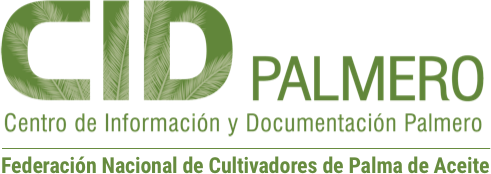| dc.creator | Salmiah Ahmad, | |
| dc.date | 2007-01-01 | |
| dc.date.accessioned | 2020-07-25T11:19:15Z | |
| dc.date.available | 2020-07-25T11:19:15Z | |
| dc.identifier | https://publicaciones.fedepalma.org/index.php/palmas/article/view/1246 | |
| dc.identifier.uri | http://repositorio.fedepalma.org/handle/123456789/139873 | |
| dc.description | Majority of oils/fats are used in food applications, about 10% goes into the production of oleochemicals. Although small in percentage, the oleochemicals industry is an important cluster due to its ability to add value. ?Oleochemicals? refer to chemicals derived from natural oils and fats of both plant and animal origins. Basically, oleochemicals refer to the fatty acids and glycerol derived from the splitting of the triglyceride structures of oils and fats. However, they also include those derivatives derived from the subsequent modification of the carboxylic acid group of the fatty acids by chemical or biological means, and other compounds obtained from further reactions of these derivatives. Oleochemicals are often categorized into basic oleochemicals such as fatty acids, fatty methyl esters, fatty alcohols, fatty amines and glycerol, and their further downstream derivatives obtained from further chemical modifications of these basic oleochemicals as depicted. Basic oleochemicals and their derivatives are used in variety of applications some of which include soaps and detergents, cosmetics and personal care products, lubricants and greases, drying oil, surface coatings and polymers, and biofuels. In theory, oleochemicals can replace petrochemicals in all their applications. The increase usage of oleochemicals is attributed to several factors such as the facts that oleochemicals are derived from renewable resources, as compared to petrochemicals which are obtained from exhaustible or non-renewable petroleum. Secondly, products derived from oleochemicals are more readily biodegradable and hence do not pose a threat to the environment and also products derived from petroleum sources use more energy and cause higher emissions of such pollutants as NO x , SO 2 , CO and hydrocarbons. Depleting resources created worldwide interests to find substitutes to diesel and petroleum and methyl ester has been identified as one of the possible substitutes for diesel. Palm oil is one of the most competitive oils that can be used to produce biodiesel and Malaysia issued many biodiesel licenses. While this created worldwide worry over the over-supply of glycerine, this new development also created a new opportunity for the oleochemicals industry. This paper will discuss thoroughly the new opportunities in the use of saturated methyl ester ? the by-product from the biodiesel industry ? for the production of anionic surfactant MES (Methyl Ester Sulfonates). The oversupply of glycerine created interests to find new uses for glycerine as well to substitute other polyhydric alcohols in various applications. Alternative uses and new derivatives of glycerin carried out such as in the area of polyurethane (as replacement of petroleum based polyols), polyglycerine and polyglycerine esters (to be used in cosmetic applications) will be discussed. | en-US |
| dc.description | La mayor parte de los aceites y grasas se emplean en aplicaciones alimentarias; cerca del 10 por ciento va a la producción de oleoquímicos. Si bien es pequeña en porcentaje, la industria de los oleoquímicos es un cluster importante, debido a su capacidad para agregar valor. "Oleoquímicos" se refiere a los químicos derivados de aceites y grasas naturales de origen vegetal y animal. Básicamente se trata de ácidos grasos y la glicerina derivados de la participación de las estructuras de triglicéridos de los aceites y las grasas. Sin embargo, también incluye aquellos derivados de la subsiguiente modificación del grupo de ácido carboxílico de los ácidos grasos por medios químicos o biológicos, y otros compuestos obtenidos de reacciones adicionales de estos derivados. Existen los llamados oleoquímicos básicos, como los ácidos grasos, ésteres grasos, alcoholes grasos, aminas grasas y glicerina, y sus derivados obtenidos de modificaciones químicas adicionales. Los oleoquímicos básicos y sus derivados se emplean en una variedad de aplicaciones entre las que se incluyen jabones y detergentes, cosméticos y productos de aseo personal, lubricantes y grasas, coberturas para superficie y polímeros, y biocombustibles. En teoría, los oleoquímicos pueden remplazar a los petroquímicos en todas sus aplicaciones. El uso aumentado de oleoquímicos se atribuye a varios factores, como que se derivan de los recursos renovables en comparación con los petroquímicos, que se obtienen del petróleo que es agotable o no renovable. En segunda instancia, los productos derivados de los oleoquímicos son más rápidamente biodegradables y, por tanto, no constituyen una amenaza para el medio ambiente, mientras que los productos derivados del petróleo utilizan mayor energía, y producen mayores emisiones de contaminantes como NOx, SO2, CO e hidrocarburos. | es-ES |
| dc.format | application/pdf | |
| dc.language | spa | |
| dc.publisher | Fedepalma | es-ES |
| dc.relation | https://publicaciones.fedepalma.org/index.php/palmas/article/view/1246/1246 | |
| dc.rights | Derechos de autor 2017 Revista Palmas | es-ES |
| dc.rights | https://creativecommons.org/licenses/by-nc-nd/4.0 | es-ES |
| dc.source | Revista Palmas; Vol. 28 Núm. especial, (2007); 82-89 | es-ES |
| dc.source | 0121-2923 | |
| dc.subject | palma de aceite | es-ES |
| dc.subject | elaeis guineensis | es-ES |
| dc.subject | industria de oleoquímicos | es-ES |
| dc.subject | tendencias | es-ES |
| dc.title | State of the art and future of Palm Oleochemistry in the World | en-US |
| dc.title | Estado del arte y futuro de la industria oleoquímica de palma en el mundo | es-ES |
| dc.type | info:eu-repo/semantics/article | |
| dc.type | info:eu-repo/semantics/publishedVersion | |


